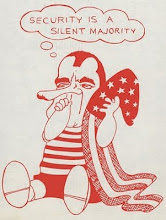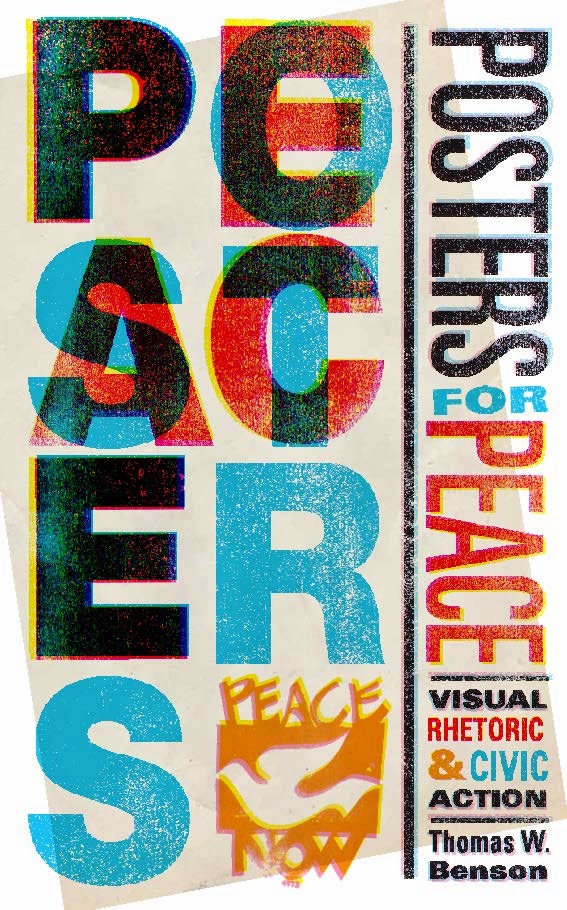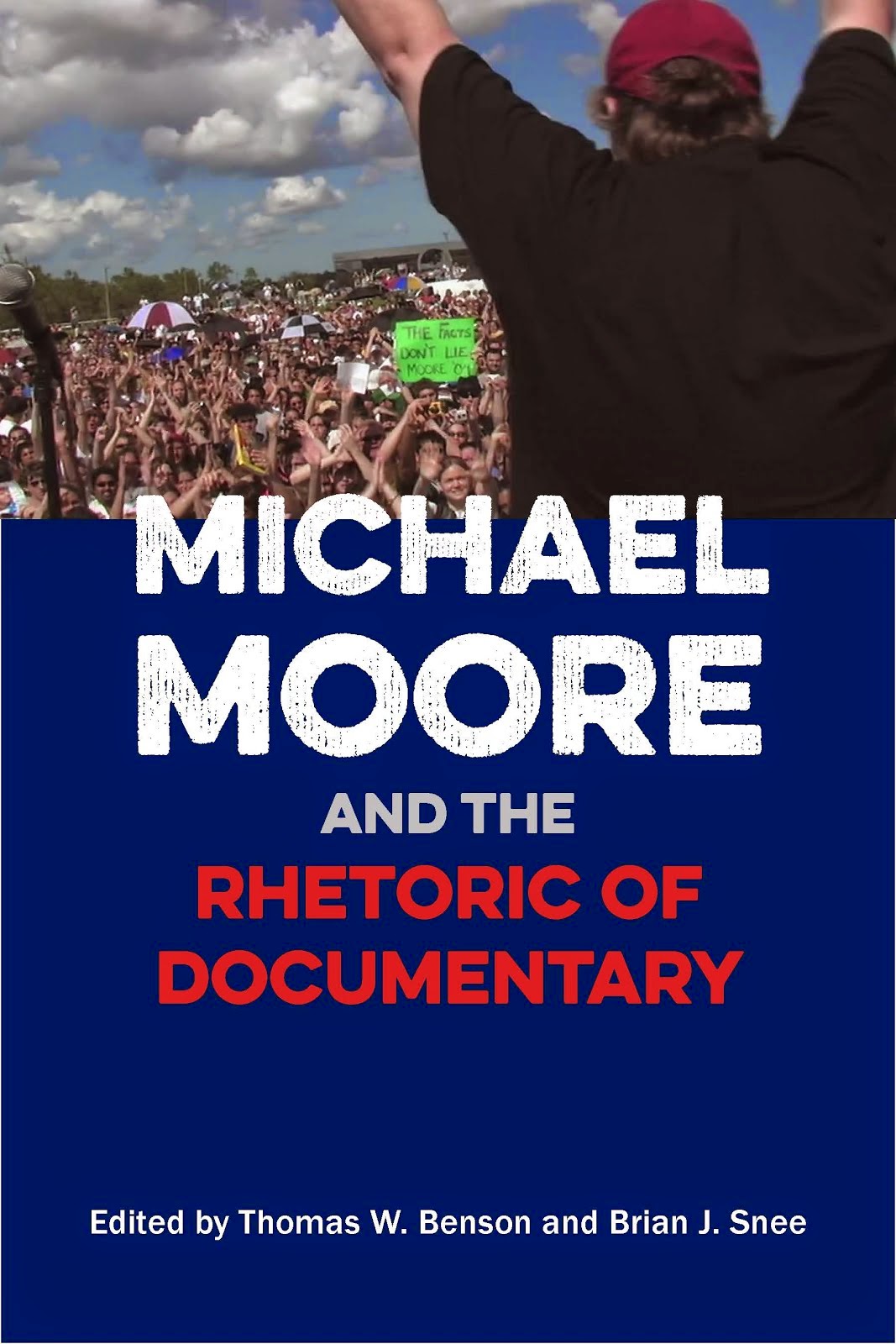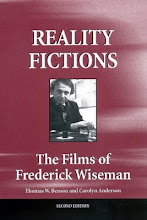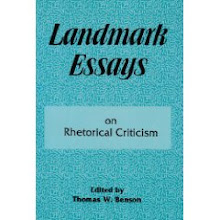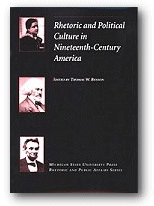Friday, October 12, 2012
Wednesday, October 10, 2012
African Yearbook of Rhetoric
The African Yearbook of Rhetoric is now available online:
Welcome to the African Yearbook of Rhetoric
The African Yearbook of Rhetoric (ISSN: 2220-2188) is a multi-lingual, peer-reviewed scholarly journal devoted to the development of rhetoric studies on, and in Africa. Some special issues are released under the imprint of The Elephant and the Obelisk.
From October 2012 the Yearbook is freely accessible on this site.
The copyright to all materials is held by AfricaRhetoric Publishing and downloads made for public usage must be acknowledged.
All correspondence to: africarhetoric@rhetoricafrica.org
South African painter Toni Bico (www.tonibico.com) is contributing original cover illustrations. (Book Covers)
List of Volumes
Vol. 1, Gender Rhetoric: North-South, September 2010.
Vol. 2, 1, Rhetorics of justice in post-societies, July 2011.
Vol. 2, 2 Under the Baobab. To Honour Stuart Saunders on his Eightieth Birthday, under the imprint of The Elephant and the Obelisk, August 2011.
Vol. 2, 3, The Great Liberation Speeches of Africa, December 2011.
Vol. 3, 1, Surveillance/Rhetorics, March 2012.
Vol. 3, 2, New Beginnings: Argentina and South Africa, June 2012.
Vol. 3, 3, Diplomatic Rhetoric in the South, November 2012.
Vol. 4, 1, Rhetoric of Statecraft in Africa, March 2013.
Welcome to the African Yearbook of Rhetoric
The African Yearbook of Rhetoric (ISSN: 2220-2188) is a multi-lingual, peer-reviewed scholarly journal devoted to the development of rhetoric studies on, and in Africa. Some special issues are released under the imprint of The Elephant and the Obelisk.
From October 2012 the Yearbook is freely accessible on this site.
The copyright to all materials is held by AfricaRhetoric Publishing and downloads made for public usage must be acknowledged.
All correspondence to: africarhetoric@rhetoricafrica.org
South African painter Toni Bico (www.tonibico.com) is contributing original cover illustrations. (Book Covers)
List of Volumes
Vol. 1, Gender Rhetoric: North-South, September 2010.
Vol. 2, 1, Rhetorics of justice in post-societies, July 2011.
Vol. 2, 2 Under the Baobab. To Honour Stuart Saunders on his Eightieth Birthday, under the imprint of The Elephant and the Obelisk, August 2011.
Vol. 2, 3, The Great Liberation Speeches of Africa, December 2011.
Vol. 3, 1, Surveillance/Rhetorics, March 2012.
Vol. 3, 2, New Beginnings: Argentina and South Africa, June 2012.
Vol. 3, 3, Diplomatic Rhetoric in the South, November 2012.
Vol. 4, 1, Rhetoric of Statecraft in Africa, March 2013.
Thursday, October 4, 2012
The Debate

photo: npr
What a disappointing debate, and I'm still trying to sort it out. By now, almost 24 hours after the first presidential debate on October 3, 2012, the press has told us all that Mitt Romney was dominant, energetic, upbeat, prepared, aggressive.
Looking at this as a rhetorical critic, I can see the way the Romney-wins! scenario comes together for the press and for many viewers. Looking at it as a citizen (of course with political perspectives of my own) I see the story very differently.
I didn't see it that way, though I found the event as a whole depressing. President Obama and Jim Lehrer both, for seemingly different reasons, deferred to a Mitt Romney who interrupted, who filibustered, and who would not be either responsive to or guided by the moderator.
Jim Lehrer -- it seems to me that as theater the obvious reading was that Jim Lehrer was too diffident, too deferential to Mitt Romney, and perhaps too old to exert the force necessary to reign in the candidate. My own reading is different, but I don't think it will be the dominant reading -- I think Jim Lehrer, one of the great TV journalists, was genuinely hoping to get the candidates talking and to stay out of their way.
Barack Obama -- again, from the point of view of theater, especially in the morning after, the interpretation is that President Obama lacked energy (must have wished he weren't there), and seemed unprepared. I think otherwise, but again I recognize that my understanding is shaped by my preferences and hopes. I thought President Obama was stunned to find Mitt Romney simply lying, taking positions very different from those he has been advocating for the past year, and that he chose not to call him on it directly. After all, if the president calls someone a liar, especially in the middle of a debate, that's an even bigger decorum violation than Mitt Romney's lies and aggressiveness.
Mitt Romney -- the press seems to agree that he had the fighting spirit, and that's been ruled the winning combination the morning after. But I saw Romney as refusing to stick to agreed upon time limits, and simply filibustering. At one crucial point, as I saw it, Romney in effect challenged the president to call him a liar, when he said that he would cut taxes and do so in a way that would not decrease revenue. But that's either a lie (when compared to his earlier campaign numbers, such as they are) or it is magical thinking -- that is, that if we drastically lower taxes, the economy will boom and revenues will go up on their own even with lower rates. We've heard that one before. Here it comes again. Romney also presented a new persona at the debate; gone (for the moment) was the "severely conservative" Romney of the primary debates; last night we saw a man imitating a center-right-wing pragmatist with a whole new set of talking points. As a citizen, this, for me, reinforces the sense that though Romney argues as if from deep inner conviction, he does not seem to carry his principles from one tactical situation to another. As a rhetorical maneuver last night, I can see how it worked its appeal.
Subscribe to:
Posts (Atom)

